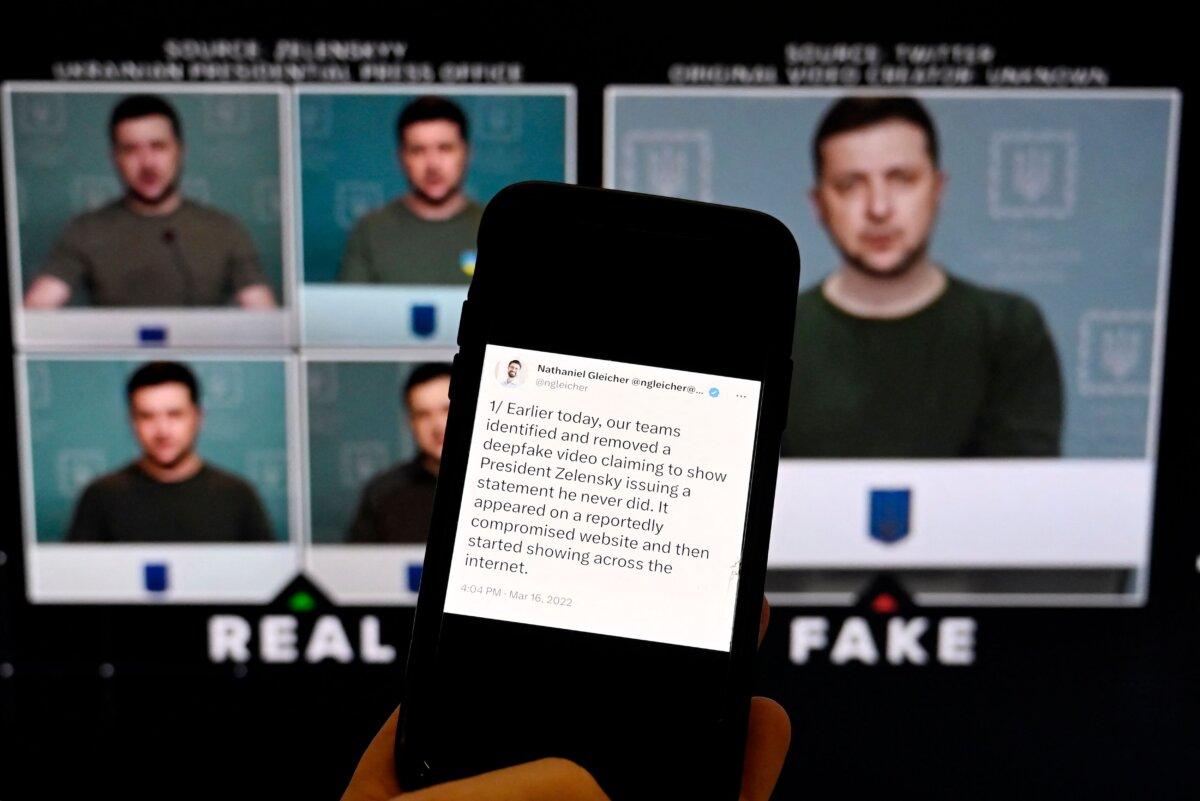This would be interesting if anyone trusted any of the megacorp propaganda outlets in the first place. But it does show they’re trying a lot of different things to crackdown on online content is coming. The social media platforms are already censoring content, and news sites that buck the propaganda memes are already debanked and in some instances have their web hosting pulled. And since the cries of governments against TikTok have died down, one would have to assume they caved on their algorithm. That leaves their big target Rumble though the CEO publicly refuses to comply.
By Stephen Katte
The Verify platform, a joint project from Fox Corp. and blockchain developer Polygon Labs, aims to be a game changer for online media companies.
Media and entertainment juggernaut Fox Corp. has launched a blockchain platform that will allow companies to track how their content is being used online, and for users to verify the source of what they see.
The Verify platform, developed in conjunction with blockchain company Polygon Labs, aims to be a game changer for online media and allow users to verify content history and original sources through an open-source protocol. In theory, it will operate as an internet database of media content that’s cryptographically signed to establish the content’s origin and history.
In the Jan. 9 announcement, Polygon Labs said Verify will address a problem that “needs to be met head on,” because at the moment “there haven’t been many real-world solutions that prove the provenance of any given piece of content.” However, Verify doesn’t appear to authenticate the accuracy of the content itself, just the original source.
“Though advances in AI have developed at a breathtaking pace, one downside of these platforms has been the rise of AI-generated media, from articles to audio to images, distinguishing truth from lies is difficult,” the blockchain company said.
“With this technology, readers will know for sure that an article or image that purportedly comes from a publisher in fact originated at the source.”
Additionally, Verify can establish a technical bridge between media companies and AI platforms. If the platform works as advertised, media companies can register content on the platform to verify it’s theirs. Once the content is verified, usage rights can be granted to AI platforms that want to use the content to train language models that support apps like ChatGPT. Fox and whoever else uses the platform could use it to negotiate licensing deals for content with AI companies.
“As AI-generated text and images flow more widely online, Verify will be able to help consumers not only identify the veritable source of content, but also give media publishers more control over relationships with AI platforms scraping the web,” Polygon Labs said.
According to a statement from Fox Corp. Chief Technology Officer Melody Hildebrandt, Fox privately launched a beta version of the Verify protocol in August. The company began uploading content to the database during Fox News’ first Republican primary presidential debate last year.
Since then, over 80,000 pieces of content have been assigned to the system, from Fox News, Fox Business, Fox Sports, and Fox’s local television stations.
Eventually, the plan will be to put all Fox content through the Verify protocol, including Fox’s entertainment content.
AI Growing Concern for World Leaders
The use of AI has been flagged as a growing concern by both governments and tech leaders since ChatGPT became available for public use on Nov. 30, 2022. ChatGPT is a chatbot, or a computer program that simulates and processes human conversation, both written and spoken.
AI-generated deepfakes have been flagged as particularly concerning. The video tech creates computer-generated images often indistinguishable from actual footage. Deepfakes have already been used in the film industry for de-aging actors.

There is also a darker side to the tech, which can be used to manipulate events on a global scale. A fake and heavily manipulated video depicting Ukrainian President Volodymyr Zelenskyy telling his soldiers to lay down their weapons and surrender in the war with Russia was circulated in 2022.
The video was debunked very quickly but could have still had serious consequences for the Ukrainian war effort. Russian military forces could have gained an enormous advantage that might have changed the war in Europe.
Companies Scrambling to Deal With the Rise of AI
Most major tech companies plan to develop AI products and services or have already released them. Microsoft, Amazon, and Google are among the most prominent. Because the tech is relatively new, it remains to be seen what safeguards to prevent misuse, if any, will be in place.
Microsoft and AI company OpenAI are being sued by nonfiction authors who allege the tech companies trained the ChatGPT tool to copy their work without consent. Microsoft and OpenAI announced a partnership last year, following several years of investment in the AI company by Microsoft.
In December last year, The New York Times also filed a lawsuit against OpenAI and Microsoft, alleging unauthorized use of its content for training AI chatbots.
At the same time, for most of 2023, the Writers Guild of America, the Screen Actors Guild, and the American Federation of Television and Radio Artists were on strike over fears AI tools would be used to replace real people and decimate the industry.
Some major social media companies have already taken action to control the use of AI in the short term.
Meta, the company that owns Facebook, has taken steps to rein in the use of AI during the 2024 presidential election. The tech giant has barred political campaigns and advertisers in regulated industries from using its new generative AI advertising products.
YouTube has also announced plans to introduce updates that will inform viewers when the content they’re seeing is created using AI.